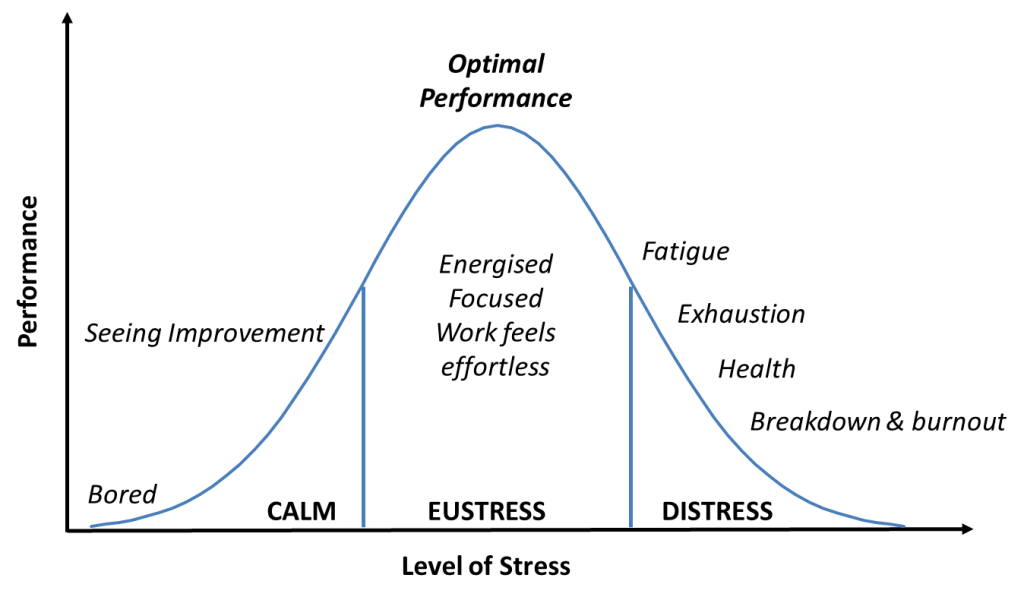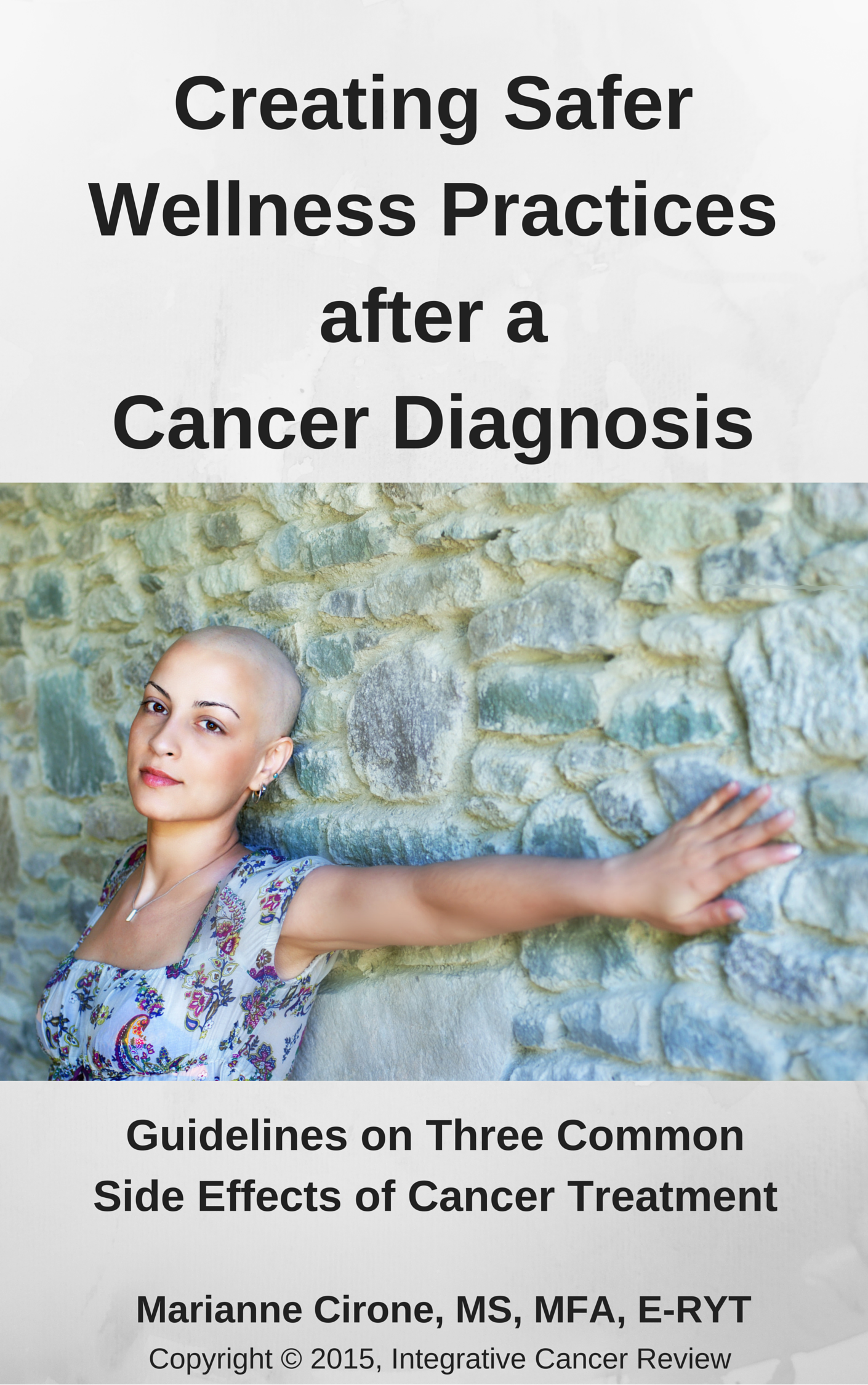Stress and Cancer: What is the Connection?
We all know how stress feels.
Strained.
Tense.
Rigid.
Exhausted.
Suffering.
Spent.
But What Really is Stress?
The first definition of stress, as we know it today, probably came in 1936, by the researcher Hans Selye. He defined “stress” as “the non-specific response of the body to any demand for change,” but later changed that to “the rate of wear and tear on the body.”
The wear and tear of cumulative stress on the mind and body is called the “Allostatic load” — the physical and mental consequences of chronic heightened neuroendocrine response that results from repeated or chronic stressors.
Frequent activation of the body’s stress response, essential for managing acute threats, can damage the body in the long run.
You may have seen pictures of presidents aging as they weather the effects of stress. The changes that show on the outside of a person reflect the changes occurring on the inside.
Is All Stress Bad?
According to researchers, there is an optimal level of stress, as shown below in a representation of the Yerkes Dodson curve:

Early or moderate stress is anabolic, meaning it builds us up, while excess stress is catabolic — it breaks us down. Performance peaks at moderate stress levels, but quickly plummets when “distress” occurs, resulting in fatigue, exhaustion, ill health and breakdown.
During stress, the body releases stress hormones, such as epinephrine and norepinephrine, which increase heart rate and blood pressure, and raise blood sugar levels, preparing us for an immediate emergency. However, when stress becomes chronic, research shows that people may develop any of the stress warning signs and symptoms listed below.
Warning signs of Stress
Physical Symptoms |
Emotional Symptoms |
| Digestive problems Chest pain, rapid heartbeat Loss of sex drive Frequent illnesses Aches and pains Dry mouth |
Anxiety Irritability Moodiness Sense of overwhelm Loneliness and isolation Depression and negativity |
Behavioral Symptoms |
Cognitive Problems |
| Isolating yourself Procrastinating Using substances Nervous habits Eating too much or too little Sleeping too much or too little |
Memory problems Concentration problems Difficulty with judgment & decision making Worrying Racing thoughts |
Causes of Stress
We have all felt some of these stressors:
- Environmental stresses – smoke, toxins, chemicals
- Significant events – from weddings to divorce, a birth or a death
- Relationships – families, co-workers, partners
- Psychological – our own mental patterns
- Spiritual – feeling unconnected to ourselves or a larger whole
- Financial – taxes, bills, work
- Time and work pressures – too much to do with too few resources
- Physical problems or illness – from colds to cancer, even poor posture
The Link between Cancer and Stress
An illness like cancer can increase stress in all of those categories—for people diagnosed as well as for caregivers.
And the link between stress and cancer? Until recently, the link between stress and cancer, and cancer outcomes, was tenuous. It may be stronger than we thought.
The National Cancer Institute states:
“Evidence from experimental studies does suggest that psychological stress can affect a tumor’s ability to grow and spread,”
and,
“Studies in mice and in human cancer cells grown in the laboratory have found that the stress hormone norepinephrine, part of the body’s fight-or-flight response system, may promote angiogenesis (growth of blood vessels in tumors) and metastasis.”
While these are two strong statements, the NCI also backs off, stating:
“Although there is still no strong evidence that stress directly affects cancer outcomes, some data do suggest that patients can develop a sense of helplessness or hopelessness when stress becomes overwhelming. This response is associated with higher rates of death, although the mechanism for this outcome is unclear.”
However, this NCI assertion, as presented on their website, may not be reflective of more recent studies that do, indeed, begin to show the ways that stress links to cancer itself and to more negative outcomes and prognosis for cancer patients.
Research Correlates Stress and Cancer Outcomes
Defining stress can be tricky, with stress hormone levels standing in as a barometer. Relatively recent research suggests not only absolute measures of stress hormones, but the daily fluctuations in stress hormones, such as cortisol rhythms, also known as diurnal cortisol or circadian rhythms, can affect health status.
Healthy cortisol slopes are fairly steep, with cortisol levels being high in the morning and low at night. Abnormal slopes typically show lower than normal cortisol levels in the morning and higher than normal levels at night. People under stress, especially for extended periods of time, often exhibit “blunted” or “flattened” cortisol slopes.
Research shows that abnormal diurnal cortisol rhythms correlate with higher rates of cancer as well as worse outcomes in people with cancer. For example, a study by Abercrombie, et al in Psychoneuroendocrinology in 2004 stated: “loss of normal diurnal variation in cortisol predicts early mortality in metastatic breast cancer for at least seven years later.”
Implications for Stress Relief and Cancer Treatment
Linking the variations in cortisol to early mortality is an important finding, one that literally “predicts early mortality.”
Could this information could potentially transform cancer treatment protocols, since recent research shows that modalities such as gentle yoga can help to normalize cortisol rhythms?
There needs to be further study, but the evidence continues to grow which supports the use of stress relief as an important piece of the puzzle in preventing or managing cancer.
See more on Stress & Cancer:
- The Power of Mindfulness after a Cancer Diagnosis with Dr. Kristen Brendel
- The Power of Safe Exercise for Cancer Survivors with Recovery Fitness® Founder Carol Michaels
- Cancer and Cortisol Rhythms: A Key to Health?
- Mindfulness with David Dachinger & Tamara Green
- How Glenn Sabin’s Book – n of 1 – is Helping to Change the Face of Cancer Care
- 2017 Breast Cancer Rehabilitation and Wellness Summit – FREE Access to 45 International Expert Speakers
- Depression after Cancer: My Experience by Jodi MacLeod
- Yoga Therapy Retreats Empower Patients after a Cancer Diagnosis, with Yoga Therapist and Cancer Survivor, Lee Majewski
- Healing Yoga Retreats after a Cancer Diagnosis: Part II with Lee Majewski, Yoga Therapist and Cancer Survivor


















